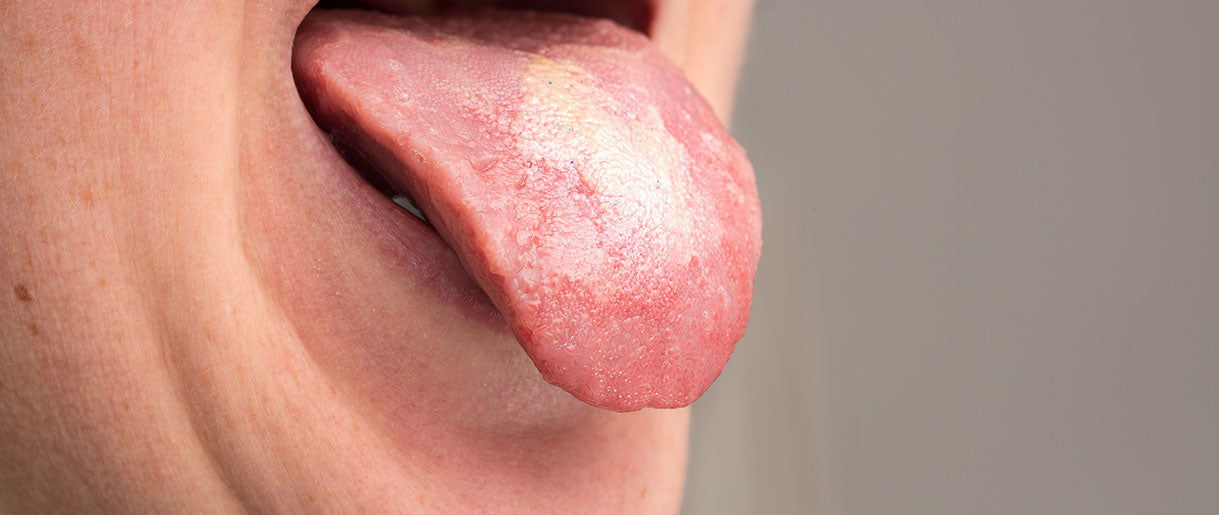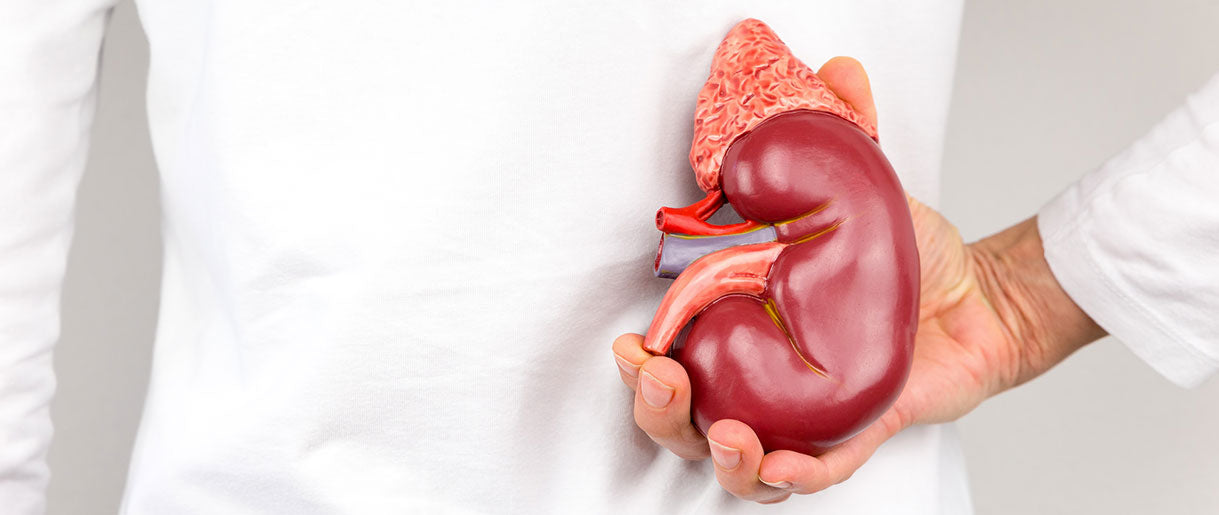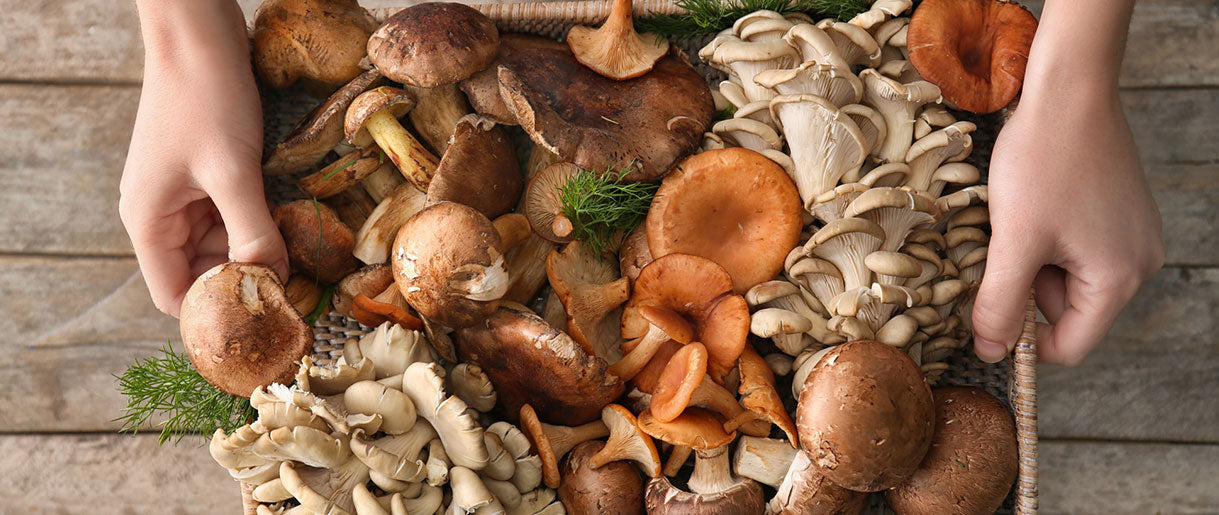Mushrooms are increasingly being researched for their potential benefits in diabetes management. Some studies suggest that certain types of mushrooms, such as Reishi and Maitake, can benefit blood sugar levels due to their high fiber content and natural insulin-like compounds.
These properties may help improve insulin sensitivity and glucose metabolism, critical factors in managing diabetes. Additionally, mushrooms are low in calories and carbohydrates, making them suitable for people with diabetes.
However, more extensive clinical trials are needed to validate these findings fully. As with any dietary changes, it is always best to consult a healthcare professional before incorporating new foods into a diabetes management regimen.
The prevalence of diabetes continues to rise worldwide, prompting the search for more effective management and prevention strategies. Many are turning to nature's pharmacy in this quest, with mushrooms emerging as potential allies. Boasting a rich nutritional profile that includes essential vitamins, minerals, and antioxidants, mushrooms are not only beneficial to general health but may also possess specific properties beneficial for those dealing with diabetes.
This article sheds light on the connection between mushrooms and diabetes management. We will delve into the scientific research that supports this claim, explore the types of mushrooms beneficial for this purpose, and provide suggestions on how to incorporate mushrooms into a diabetic-friendly diet.
The Marvelous World of Mushrooms

Unearthing the Definition and Varieties of Mushrooms
Mushrooms are fungi characterized by their umbrella-like appearance, although this can significantly vary among the myriad species. Broadly classified as edible mushrooms and medicinal mushrooms, they hold a central place in several cuisines and traditional medicine practices worldwide.
Some of the popular edible mushrooms that you might come across in a grocery store or a gourmet restaurant include shiitake mushrooms, oyster mushrooms, portobello mushrooms, and maitake mushrooms.
Notably, shiitake mushrooms and maitake mushrooms also find a place in the category of medicinal mushrooms, revered for their health-boosting properties.
Mushrooms: A Nutritional Powerhouse
Raw mushrooms offer an impressive nutritional profile. They contain essential B vitamins, dietary fiber, and various bioactive compounds. One of the standout aspects of mushroom consumption is their rich B vitamins content. These vitamins are instrumental in maintaining a healthy diet and supporting various bodily functions, including metabolism and red blood cell formation.
Moreover, when sun-exposed, specific types like shiitake mushrooms and oyster mushrooms are excellent sources of Vitamin D. Regular eating of mushrooms can also help maintain a healthy gut. Maitake, for instance, is often dubbed the best mushroom for gut health due to its potential influence on gut microbiota.
The Panoply of Health Benefits from Mushrooms
Eating mushrooms can yield many health benefits, making them a prized functional food. Their benefits span different health domains, from supporting the immune system to potentially assisting with high blood pressure management.
One of the significant health benefits of mushrooms comes from their phenolic compounds, which exhibit antioxidant properties. Regular mushroom consumption may thus help combat oxidative stress associated with various chronic conditions, including Alzheimer's disease. Some research suggests that eating mushrooms, specifically shiitake, and oyster mushrooms, may potentially have a role in Alzheimer's disease prevention.
Besides, portobello mushrooms and other varieties can be excellent dietary supplements, especially for vegetarians or vegans, owing to their high protein content and variety of vitamins and minerals. Consuming these edible mushrooms as part of a balanced, healthy diet may contribute to overall well-being.
Beneficial Mushrooms for Diabetes Management: An In-depth Look

Unraveling the Anti-diabetic Properties of Specific Mushrooms
Regarding mushrooms for diabetes, several specific varieties have shown promising results due to their anti-diabetic potential. This section will focus on a few standout mushrooms that might positively affect blood sugar levels, insulin resistance, and overall diabetes management strategy.
1. Lion's Mane Mushrooms
Lion's mane mushrooms are known for their unique appearance resembling a white shaggy mane. Beyond their visual appeal, these mushrooms harbor potential health benefits, including helping manage diabetes.
Some studies(1) on diabetic mice have shown that these mushrooms might lower blood sugar levels by reducing plasma glucose and protecting against pancreatic tissue damage. This makes Lion's Mane for diabetes an exciting area of research.
2. Oyster Mushrooms
Oyster mushrooms are another popular choice in a diabetes diet. They are not only tasty when cooked but also have many health benefits. Research suggests(2) these mushrooms can help manage blood glucose levels and improve insulin resistance, critical factors in controlling diabetes mellitus.
3. Reishi Mushrooms
Reishi mushrooms—often hailed for their medicinal properties—may significantly affect diabetes management. Preliminary studies(3) on diabetic rats and alloxan-induced diabetic mice suggest that they may assist in glucose control and reduce blood cholesterol levels. While these findings are promising, more human research is required to substantiate the benefits of Reishi for diabetes in humans.
4. Chaga Mushrooms
Chaga mushrooms are well-respected in the world of medicinal mushrooms. Research(4) on diabetic mice has shown a potential reduction in blood sugar levels upon consuming Chaga mushrooms, pointing towards their anti-diabetic properties. These results suggest that Chaga could fight diabetes in humans.
5. Turkey Tail Mushrooms
Turkey tail mushrooms, named for their colorful, fan-like appearance, have shown potential anti-diabetic potential in preliminary studies(5). Consuming these mushrooms may help maintain glycemic control and reduce body weight, which is beneficial for managing type 2 diabetes.
6. Cordyceps Mushrooms
Cordyceps mushrooms, often used in traditional Chinese medicine, have been studied for their anti-diabetic properties. Research suggests(6) that they might benefit blood sugar and insulin levels. Their influence on diabetic rats has shown encouraging results, but further human research is needed to understand the benefits of cordyceps for diabetes.
7. Portobello Mushrooms
Portobello mushrooms, widely loved for their meaty texture, are excellent for a diabetes diet. They have a low glycemic index and glycemic load and may help with glucose absorption, making them suitable for maintaining stable blood sugar levels.
Mushrooms in Your Diabetes Diet: Suggestions and Considerations
Incorporating these mushrooms into a diabetes-friendly diet could be a delicious way to manage your blood sugar levels. Some ways to do this could be adding raw mushrooms to salads, using oyster mushrooms in stir-fry dishes, or grilling portobello mushrooms as a meat substitute.
Lion's mane mushrooms could be used in soups or teas—you can also use our tasty Lion's mane mushroom recipes for great meals. Reishi, Chaga, turkey tail, and cordyceps mushrooms are commonly available as mushroom powders that can be mixed into smoothies, soups, or teas. However, starting with small amounts is best due to their intense flavors.
Beyond Diabetes Management: The Additional Health Benefits of Mushrooms

A Wealth of Benefits: Unveiling the Hidden Powers of Mushrooms
While it's clear that mushrooms for diabetes hold substantial promise, these functional foods' health benefits extend far beyond blood sugar control. Edible mushrooms are a powerhouse of nutrition, offering therapeutic benefits for several chronic diseases, not just diabetes mellitus.
Immunity Boosting Properties
Mushrooms, particularly their fruiting bodies, are rich in bioactive components like mushroom polysaccharides and secondary metabolites. These compounds have shown promise in enhancing immune function.
Regular consumption of mushrooms can thus strengthen our defenses against various pathogens, which is particularly beneficial for those with diabetes who may be more prone to infections.
Support for Heart Health
The lipid metabolism-modulating properties of mushrooms could also prove advantageous for heart health. Mushrooms are known to assist in managing blood cholesterol levels, and some types even contain compounds that can prevent lipid peroxidation—a process linked with cardiovascular disease.
Vitamin Powerhouse
Mushrooms are an excellent source of B vitamins, including riboflavin (B2), niacin (B3), and pantothenic acid (B5). These vitamins play a vital role in ensuring our body's cells function correctly and are especially beneficial for those managing chronic conditions like diabetes.
Potential Support for Gestational Diabetes
Interestingly, the health benefits of mushrooms may extend to those dealing with gestational diabetes—a type of diabetes that develops during pregnancy. While the research is still in the early stages, preliminary findings suggest that regular consumption of mushrooms can aid in blood glucose regulation in gestational diabetes.
Complementing Diabetes Management with Mushrooms
The additional health benefits of mushrooms can complement diabetes management in several ways. For instance, their immune-boosting properties can help ward off infections that individuals with diabetes might be more susceptible to. Moreover, their potential heart health benefits align well with the need for cardiovascular disease prevention in people with diabetes.
The B vitamins in mushrooms can improve overall health and well-being, while their potential benefits in managing gestational diabetes provide a natural dietary option for expectant mothers.
Making Room for Mushrooms: Incorporating Them into Your Diabetes Diet

Cooking with Mushrooms: Preparation and Tips
While we've extensively discussed the potential benefits of mushrooms for diabetes, you might be wondering how to include these edible fungi in your diet. Mushrooms are incredibly versatile and can be prepared in countless ways. They can be grilled, sautéed, roasted, or even eaten raw, each method offering its unique taste and texture.
When preparing mushrooms, cleaning them properly is crucial to remove any dirt or debris. A damp cloth or a soft brush is often sufficient for this task. Avoid soaking them in water, as they can absorb moisture and become soggy.
Mushrooms can be a great low-carb alternative to other foods. For instance, a grilled portobello mushroom cap can replace a burger bun for a lower-carb meal. Similarly, finely chopped mushrooms can be used as a filling for tacos or burritos instead of higher-carb grains.
Delicious and Diabetic-friendly Mushroom Recipes
To get you started, here are a couple of mushroom-based recipes that are suitable for a diabetes diet and can help manage blood sugar levels:
Mushroom Stir-fry
Sauté a variety of mushrooms like shiitake, oyster, and portobello with some garlic, onions, and your favorite low-sodium sauce. This stir-fry can be served with steamed vegetables for a low-carb, fiber-rich meal.
Grilled Portobello Mushroom Caps
Marinate portobello mushroom caps in olive oil, minced garlic, and herbs. Grill until tender and serve with mixed greens for a low-carb, nutrient-dense meal.
Mushroom Soup
Make a comforting mushroom soup using a variety of mushrooms, onions, garlic, low-sodium broth, and a splash of milk for creaminess. This soup is a warming, satisfying option, especially for colder days.
Remember, while these dishes are designed to be diabetic-friendly and assist with lowering blood glucose levels, monitoring your glucose levels and adjusting portion sizes according to your dietary needs is essential.
Caution: Not All Mushrooms are Edible
While incorporating mushrooms into your diet can potentially support your diabetes management strategy, it's essential to proceed cautiously. Not all mushrooms are edible; some can be toxic and cause adverse reactions. Always buy your mushrooms from reliable sources, and if you're foraging, be sure of a mushroom's identity before consuming it.
Some people may also be allergic to mushrooms. If you're introducing mushrooms into your diet for the first time, start with small amounts to see how your body reacts. If you notice allergic symptoms such as itching, swelling, or difficulty breathing, seek medical help immediately.
Mushrooms For Diabetes Video
FAQs About Mushrooms for Diabetes
Can I Eat Mushrooms Every Day If I Have Diabetes?
Yes, you can eat mushrooms daily if you have diabetes, but it's essential to consider a few factors. Mushrooms are low in carbohydrates and high in fiber, making them a great food to include in a diabetes-friendly diet. However, they should be part of a balanced diet that includes a variety of other vegetables, lean proteins, and whole grains.
How you prepare and cook your mushrooms can also impact their nutritional value—avoid frying or using excessive amounts of unhealthy oils. As with any diet change, it's best to consult your healthcare provider or nutritionist to ensure it suits your health needs. Remember, while mushrooms can offer health benefits, they are not a replacement for prescribed diabetes medication.
Does Cooking Method Impact The Anti-Diabetic Properties Of Mushrooms?
The cooking method can indeed impact mushrooms' nutritional and anti-diabetic properties. Heat can degrade some of the nutrients in mushrooms, including certain vitamins like vitamins B and C.
However, it's also worth noting that cooking can help break down the cell walls of the mushroom, making some nutrients more accessible and easier for your body to absorb. Some studies suggest that cooking methods such as grilling or microwaving might help preserve the nutritional content of mushrooms better than boiling or frying.
Can Children With Type 1 Diabetes Benefit From Including Mushrooms In Their Diet?
Yes, children with type 1 diabetes can benefit from including mushrooms in their diet. Mushrooms are nutrient-dense, rich in fiber, and contain various vitamins and minerals, including B vitamins, selenium, and potassium, essential for overall health. The fiber content can help slow down the absorption of sugar into the bloodstream, potentially reducing blood glucose spikes that are common in individuals with diabetes.
However, it's important to note that while mushrooms can be a healthy addition to a child's diet, they are not a cure for diabetes. Management of type 1 diabetes in children requires a comprehensive approach, including insulin therapy, regular blood sugar monitoring, and a balanced diet.
Is There A Risk Of Drug Interactions When Consuming Medicinal Mushrooms And Diabetes Medication?
Yes, there can potentially be a risk of drug interactions when consuming medicinal mushrooms alongside diabetes medication. Some components in medicinal mushrooms, such as certain polysaccharides, have been found to lower blood glucose levels. While this can be beneficial, if you're already taking medication to lower blood sugar, combining the two could cause your blood sugar to drop too low, a condition known as hypoglycemia.
Furthermore, some mushrooms may impact how certain drugs are metabolized in the body, potentially influencing their effectiveness.
It's essential to consult with your healthcare provider before starting any new supplement regimen, including medicinal mushrooms. They can guide safe practices, potential risks, and how to monitor for any adverse reactions.
Key Takeaways
The body of evidence exploring the potential benefits of mushrooms for diabetes has grown significantly in recent years.From their role in blood sugar regulation to their potential effects on insulin resistance, these humble, nutrient-packed fungi offer remarkable potential as a functional food in a diabetes-friendly diet.
Incorporating edible mushrooms into meals, such as oyster, portobello, and shiitake, may potentially aid in lowering blood glucose levels while offering additional health benefits—these range from heart health support to boosting immunity, making mushrooms a versatile addition to any dietary regimen.
However, it's important to remember that while the role of mushrooms in diabetes management is promising, they are not a cure-all solution. Diabetes management requires a multifaceted approach, involving regular exercise, medication (as prescribed by your healthcare provider), and a balanced diet.
Before incorporating mushrooms into your diet or increasing their consumption, especially for therapeutic purposes, consult a healthcare professional or dietitian. They can provide personalized advice, considering your health needs and current medications.
As we close this exploration of mushrooms for diabetes, we invite you to share your experiences. Have you found that adding mushrooms has helped manage your diabetes? Do you have favorite recipes that incorporate these beneficial fungi? We'd love to hear your thoughts and experiences.
References
- Antihyperglycemic and antihyperlipidemic activities of aqueous extract ofHericium erinaceus in experimental diabetic rats, (1)https://www.ncbi.nlm.nih.gov/pmc/articles/PMC3852124/
- Oyster mushroom functions as an anti-hyperglycaemic through phosphorylation of AMPK and increased expression of GLUT4 in type 2 diabetic model rats, (2)https://www.ncbi.nlm.nih.gov/pmc/articles/PMC6694896/
- Mushrooms of the GenusGanoderma Used to Treat Diabetes and Insulin Resistance, (3)https://www.ncbi.nlm.nih.gov/pmc/articles/PMC6891282/
- Anti-diabetic effects of Inonotus obliquus polysaccharides in streptozotocin-induced type 2 diabetic mice and potential mechanism via PI3K-Akt signal pathway, (4)https://pubmed.ncbi.nlm.nih.gov/28954386/
- Extracellular Polysaccharopeptides from Fermented Turkey Tail Medicinal Mushroom, Trametes versicolor (Agaricomycetes), Mitigate Oxidative Stress, Hyperglycemia, and Hyperlipidemia in Rats with Type 2 Diabetes Mellitus, (5)https://pubmed.ncbi.nlm.nih.gov/32749097/
- Cordyceps militaris extracts and cordycepin ameliorate type 2 diabetes mellitus by modulating the gut microbiota and metabolites, (6)https://pubmed.ncbi.nlm.nih.gov/36969858/










Let Us Know Your Comments